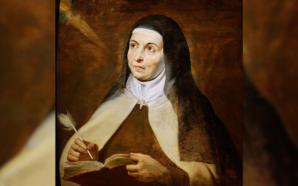Homily for the 5th Sunday of Easter, 28 April 2024
Readings: Acts 9:26-31; Psalm 22; 1 John 3:18-24; John 15:1-8
We Christians come in all shapes and sizes. So do bishops, some of whom even set up their own churches. We have all been horrified by the on-air stabbing of Bishop Mar Mari Emmanuel in Western Sydney. This was an appalling act of terrorism on our own home shores. I have every sympathy for the bishop and am grateful that he was so prompt in calling for forgiveness for his young assailant.
Listen at https://soundcloud.com/frank-brennan-6/homily-28424
From his hospital bed, he delivered a video homily saying: ‘I forgive whoever has done this act and I say to him, you are my son, I love you and I will always pray for you. And whoever sent you to do this, I forgive them as well, in Jesus’ mighty name. I have nothing in my heart but love for everyone, whether this person is Christian or not, that is totally beside the point.’[1]
The bishop’s Christianity was on display for all, winning adulation from even the most ardent atheists. But that does not mean that I have much sympathy for many of the things the bishop said before and after the attack. Some of his pre-attack teachings I find repugnant or just weird.
Coming from Iraq, he was first ordained a bishop in the Ancient Church of the East. Having been suspended in 2014, he established his own Church: the Christ of the Good Shepherd Church.
We don’t yet know authoritatively which, if any, of the bishop’s teachings occasioned the attack on him. Even those sympathetic to his many public teachings might have cause for concern to see his alignment with Elon Musk and his opposition to the Albanese government’s call for the video of his stabbing to be removed from the internet. When the bishop was speaking before the attack on issues such as the rights of LGBT persons and after the attack on the limits of freedom of speech and government intervention, I did not see him as speaking for me, and neither did I see him to be teaching an uncontested Christian message.
We Christians are very used to diverse opinions, especially when it comes to discerning and distilling the essence of Christian teaching from its cultural and ideological trappings. Our divisions run deep and even occur when the essence of Christian teaching is under discussion. That’s the big lesson of the readings we hear after Easter from the Acts of the Apostles. The disciples in Jerusalem could never quite work out what to make of Paul after his radical conversion at Damascus. He was not one of them, but they were desperate that he be one of them if he were to be an evangelist.
If we listen only to Paul’s account of things in his letter to the Galatians, we are left in no doubt. He writes: ‘[M]y immediate response was not to consult any human being. I did not go up to Jerusalem to see those who were apostles before I was, but I went into Arabia. Later I returned to Damascus. Then after three years, I went up to Jerusalem to get acquainted with Cephas and stayed with him fifteen days. I saw none of the other apostles—only James, the Lord’s brother. I assure you before God that what I am writing you is no lie.’ (Galatians 1:17-20)
Paul was adamant. He was not under the control of the apostles in Jerusalem. He spent a full three years discerning his message and evangelising before he went to Jerusalem. He did not go to sit at the feet of the apostles. He did not go to Jerusalem to receive authorisation. He went to Jerusalem for only 15 days and the only two apostles he saw were Cephas and James: ‘I saw none of the other apostles…I assure you before God that what I am writing is no lie.’
The writer of the Acts of the Apostles gives us a very different account. Saul came promptly to Jerusalem after his conversion and ‘tried to join the disciples’. He tried his hand at evangelisation in Jerusalem: ‘He moved about freely with them in Jerusalem, and spoke out boldly in the name of the Lord. He also spoke and debated with the Hellenists, but they tried to kill him.’ The apostles then decided to move him on, and the church everywhere was at peace.
We don’t know which account is more accurate. What we do know is that Paul is keen to advocate his own independence as a proclaimer of the good news, while the writer of Acts is anxious to bring Paul inside the tent, controlling his mission and his preaching, for the sake of peace and good order in the Church.
From Day One, there has been a vast panoply of viewpoints about the Christian message. It takes all sorts. Whatever our differences, today’s gospel offers us a realistic and hopeful image:
‘I am the vine, you are the branches.
Whoever remains in me and I in him will bear much fruit,
because without me you can do nothing.
Anyone who does not remain in me
will be thrown out like a branch and wither;
people will gather them and throw them into a fire
and they will be burned.
If you remain in me and my words remain in you,
ask for whatever you want and it will be done for you.’
There are many branches on the vine and some of them seem very foreign to us. Some branches need to be thrown into the fire. Other branches can bear abundant fruit. Without Christ, we can do nothing. As we confront the different cultural and ideological trappings of our Christian faith, let’s pray that we can remain attached to the vine producing the fruit of love and forgiveness for all.
From the start of 2024, Fr Frank Brennan SJ will serve as part of a Jesuit team of priests working within a new configuration of the Toowong, St Lucia and Indooroopilly parishes in the Archdiocese of Brisbane. Frank Brennan SJ is a former CEO of Catholic Social Services Australia (CSSA). Fr Frank’s latest book is An Indigenous Voice to Parliament: Considering a Constitutional Bridge, Garratt Publishing, 2023.
[1] See https://www.9news.com.au/national/bishop-mar-mari-emmanuel-speaks-after-wakeley-church-stabbing/957cd43e-0332-40fb-99ef-467112b412b0








